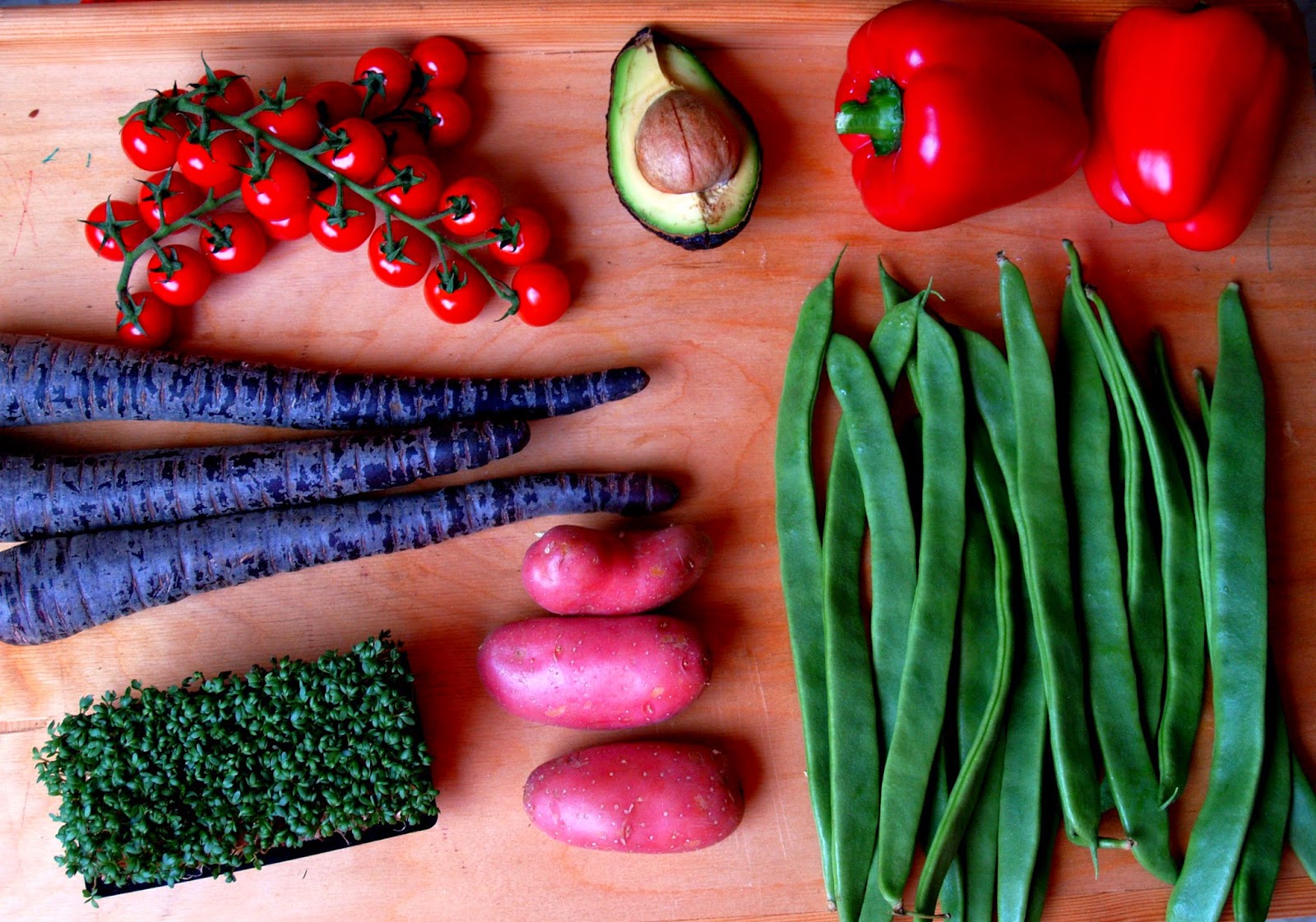
Vitamin-bomb, fiber, minerals, antioxidants... and way more. These are important ingredients you will find in our little colorful friends: fruits and vegetables.
As advised by healthy eating experts and doctors of all over the world, we should consume 5 portions of fruits and vegetables every day. And one portion refers usually to a handful. Not a bowl ;) Even though in cherry season I would rather eat a whole cherry tree.
Five to nine servings a day. But what are the vegetables we should choose to fight and prevent the diseases and boost our immune system? Read and you will find out.
Red pepper
Consume of red pepper will provide you with a high amount of vitamin C. It is not only a powerful antioxidant. Vitamin C helps iron to be absorbed. So in combination with an iron source red pepper would be the best choice to multiply the effect.
As the nutrition story might take a while, I will make a short summary. Red peppers:
- are rich in vitamin B6 and magnesium- takes our anxiety away (useful especially before period);
- provide us with vitamin A - good to improve night vision;
- have combination of vitamins A and C - for great antioxidant effect;
- contain lycopene, that prevents cancer.
Purple carrot
Have you ever tried purple carrots? Their fancy look attracts your attention from the first moment you see them. And they are not simply a colored variety of the carrots we are used to eat.Purple carrots:
- can improve memory;
- are rich in vitamin A;
- improve our vision;
- can protect from heart attacks.
All in all purple carrots are known as a superfood that helps to control weight.
Tomato
Choline found in tomatoes can improve our sleep quality, memory and muscle conditions.Extra bright and juicy, these veggies have the following positive effects on our health:
- alpha-lipoic acid helps to reduce insulin level, aand convert glucose into energy;
- vitamins A and C plus folic acid help to keep women health;
- high amount of lycopene made tomatoes very popular among self conscious popularity, as it prevents cancer.
Strongly recommend to include tomatoes in salad as you can see here.
Avocado
Although avocado is technically a fruit, also known as alligator pear, I constantly take it as a vegetable and therefore include it in here.Avocado provides us with nearly 20 vitamins and minerals, including potassium (controls blood pressure), lutein (improves vision), and folate (cell reparation).
As a good source of B vitamins, avocado assists our skin and hair nutrition. Moreover vitamin E is known as powerful antioxidant.
High in fat (24 g/ 100 g) avocado should be eaten in moderation. 50 calories are equivalent of 1/5 part from middle sized avocado. But 19 g of these 24 g of fat is monounsaturated, and it is a "good" fat, that helps to lower cholesterol. Mashed avocado is the best alternative to butter. And did you try prawns on mango-avocado salsa? It is a perfect combination worth to try.
Green beans
Green beans are a perfect source of the following vitamins and minerals:- vitamins A;
- vitamin C;
- vitamin K;
- folate;
- magnesium;
- iron;
- thiamin;
- riboflavin;
- potassium.
Green beans contain high amount of chlorophyll, which can block the carcinogenic effects that appear when you fry at high temperatures.So if you like fried meat, for example, make sure you choose green vegetables as a side dish to decrease your risk.
Positive effects from consuming green beans are:
- for pregnant women - protect their infants against neural tube defects. One cup of green beans provides approximately 10% of daily folic acid needs and 6% of iron.
- help to fight depression;
- improve bone health;
- prevent cancer etc.

Garden Cress
The last, but nor least - garden cress. I count it as +1 to all the best veggies for our health. Did you know that this tiny pretty grass can prevent cancer with potentially higher force than a lot of vegetables?
Additionally to that garden cress is:
- Good for Your Vision and Eye Health;
- even better source of vitamic C than Oranges;
- a provider of positive effect for our heart and blood system;
- supercharged with vitamin K;
- good for our teeth.
How to Maximize Nutritional Value of Garden Cress
The best nutrition value of garden cress begins immediately after harvest. So, one of the best ways to maximize the health benefits of garden cress is to grow your own cress and harvest it as needed. You can grow cress at home following the steps here.
5-10 portions of vegetables and fruits a day and you are fully charged with vitamins and fiber. Variety is the best factor when choosing.
Eat fresh and stay healthy.
Take care.

Great bblog I enjoyed reading
ReplyDelete